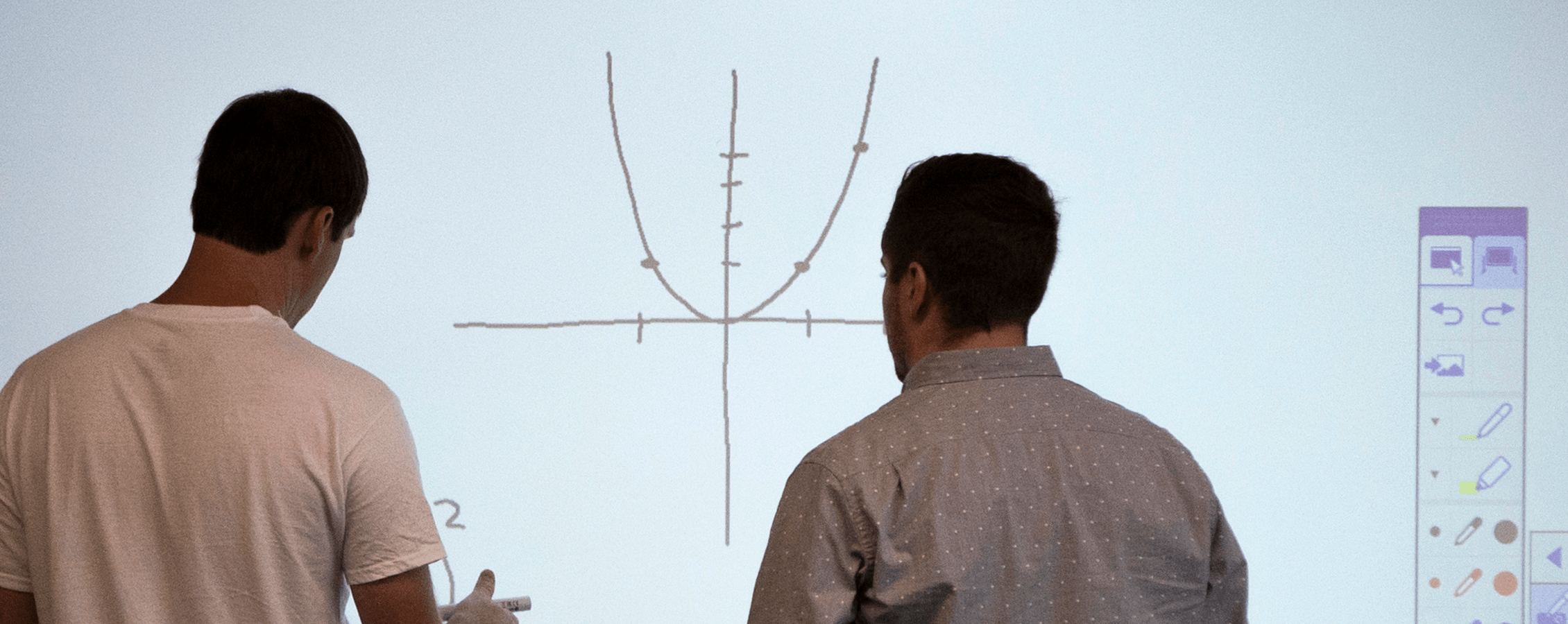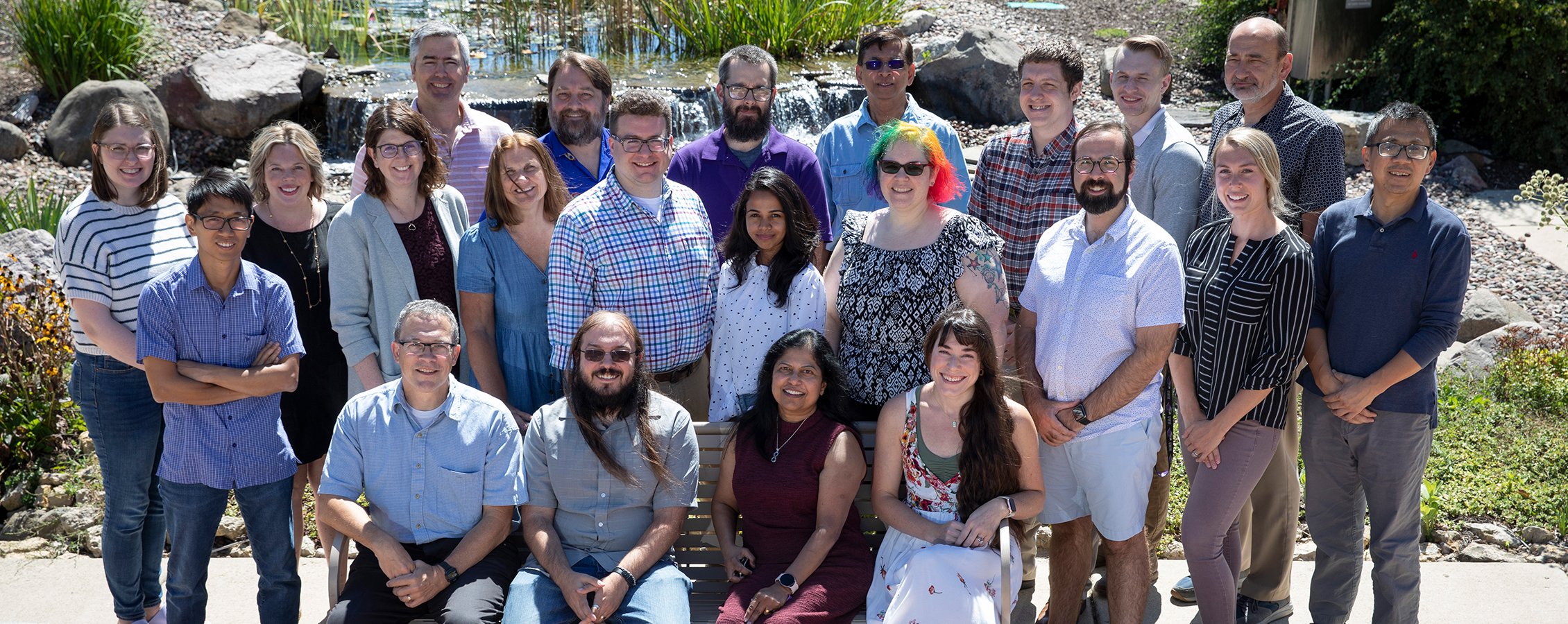DEPARTMENT OF MATHEMATICS
The Department of Mathematics at UW-Whitewater offers a versatile and rigorous program designed to equip you with essential problem-solving and critical reasoning skills—the core language of science and quantitative relationships.
We ensure diversity in your course options, with career-focused majors in Actuarial Science, Statistics, and Mathematics Education, alongside a flexible General emphasis. Our degrees provide a strong foundation for advanced study at the graduate level and open doors to high-demand careers in industry, education, finance, and more. We actively connect students with internships and undergraduate research to build real-world experience, and offer a myriad of scholarships to help make college more affordable.
Most importantly, you'll join a collaborative professional community. Our friendly, supportive faculty are personally committed to fostering your academic and professional growth, helping you navigate your studies and achieve your career goals.
Contact us
Rachel Chaphalkar
Department Chair and Professor
262-472-2764
Laurentide Hall 2207
Bailey Ellefson
Department Assistant
262-472-1313
Laurentide Hall 2205
UW-Whitewater offers students a wide variety of scholarships, both through the university, individual colleges, and departments. The Department of Mathematics has a number of scholarships and awards geared specifically toward our students, including:
- C/K Flanagan Scholarship
- Clayton Droullard Mathematics Scholarship
- Marion B Schlicher
- Mark & Dianne Fiebrink
- William C Beck Scholarship
- Stephen Lewandowski Mathematics Scholarship
- The Goldwater Scholarship
- UW System Regent Scholarship
More information about these and other scholarships is available through the scholarship portal.
The Department of Mathematics supports a number of student clubs and organizations, including Student Math Association (SMA), Pi Mu Epsilon, and Bridge Club.
The department also offers tutoring services at the Mary Peppe Chrisman Success Center.
A set of resources for students who would like to review algebraic skills. This is especially helpful for students who have been placed into Math 041 and would like to retake the math placement test. The resources can also benefit students who were placed into Math 139 or 93 or anyone who would like to refresh their math skills.
Math Resources Online - Password: UWWMath
You will have ONE opportunity to retake the test and improve your score.
Explore our academic programs
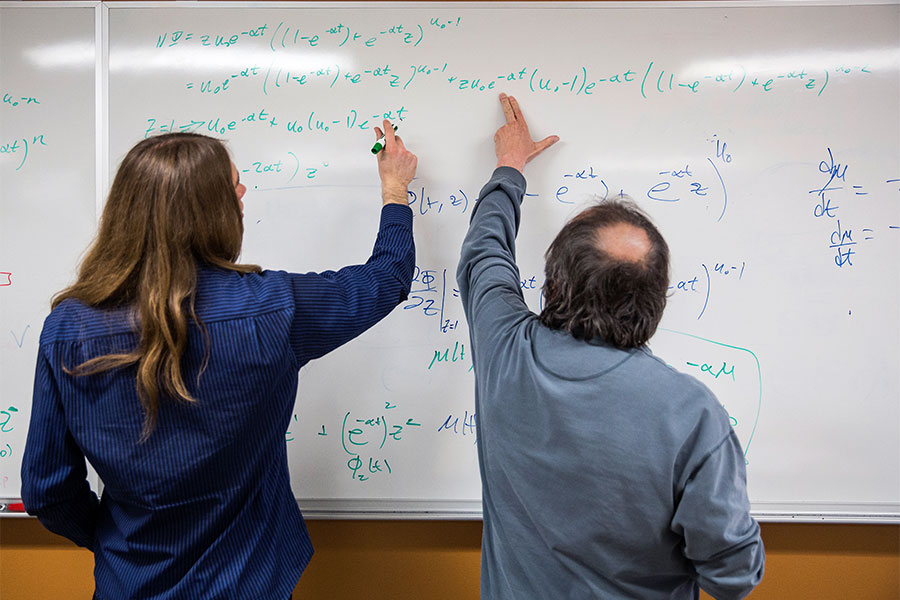
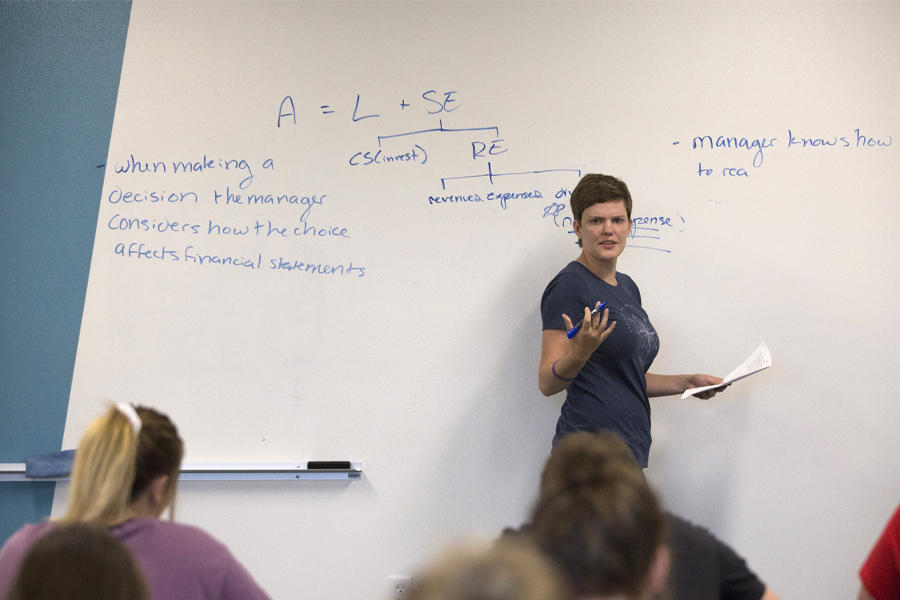
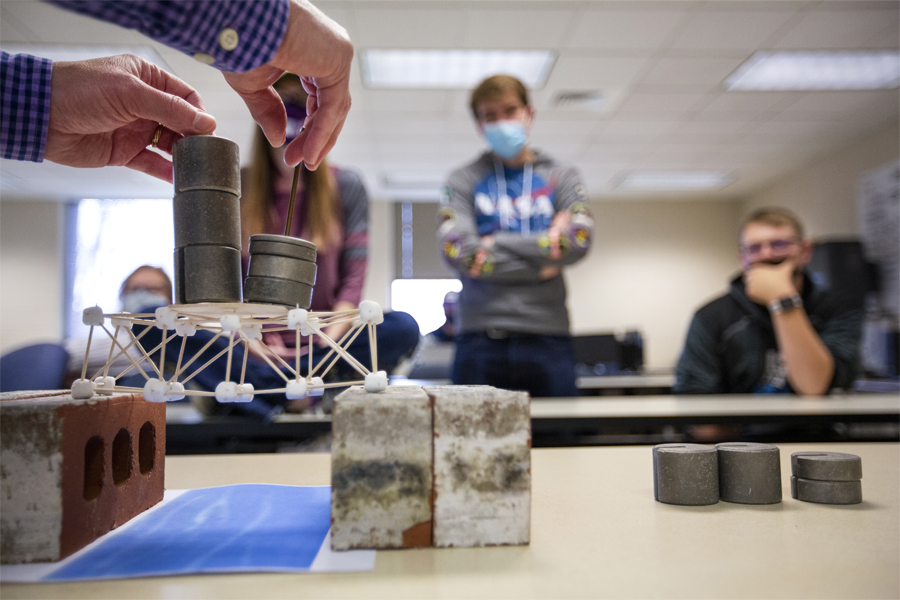


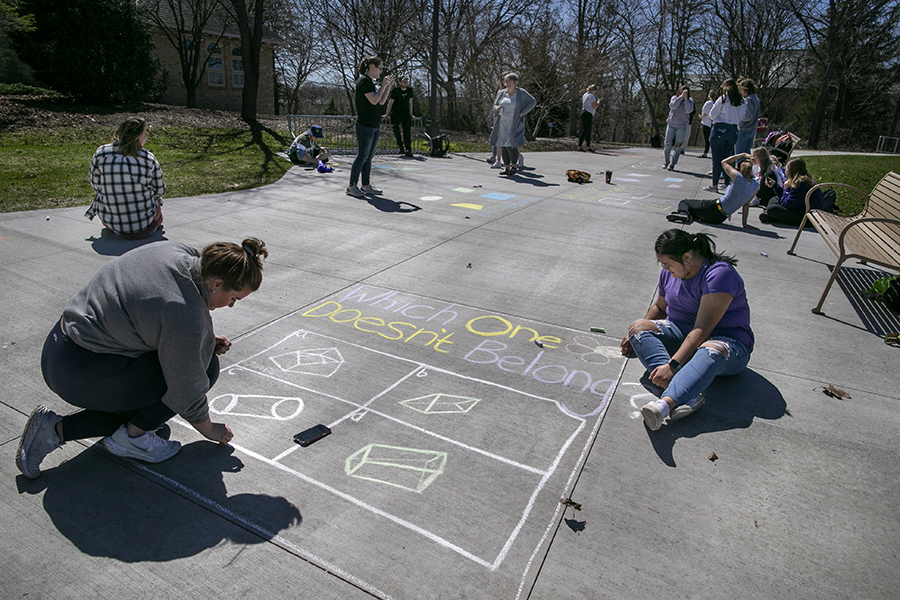
Mathematics
Major/Emphasis, Minor, Online Certificate (Graduate)As a math student, you’ll gain an excellent foundation for all areas of science and engineering, and be able to solve problems from the ordinary to the sophisticated and technical. Mathematics is the language that expresses scientific and quantitative relationships and, at the same time, is a discipline with a structure and beauty of its own.
Mathematics (Actuarial Mathematics)
MinorStudents who major in another discipline, such as business or finance, and are interested in becoming an actuary, take the Actuarial Mathematics minor to gain the necessary background in calculus, probability, and statistics to prepare for the Society of Actuaries exam.
Mathematics (Actuarial Science)
Major/EmphasisActuaries use mathematics and statistics to assess risk and measure uncertainty in various industries, especially insurance and finance. Students who pursue the Mathematics - Actuarial Science major emphasis or Actuarial Mathematics minor will take courses in calculus, probability, statistics, and financial mathematics to prepare for the Society of Actuaries exams.
Mathematics (Middle Grades)
Certificate (Undergraduate)Developing strong mathematic skills at an early age is immensely important as children grow up in a world full of finances and statistics. By earning a certificate in Mathematics - Middle Grades, students will be trained to eventually become the educators that help youth strengthen these skills, through taking courses on modern algebra for elementary teachers, geometry, precalculus, and more.
Mathematics (Statistics)
Major/Emphasis, MinorStatisticians collect, analyze, and interpret real-world data to make informed decisions. Students who pursue the Mathematics - Statistics major emphasis or Statistics minor take courses in mathematics and statistics. They use industry-standard software and techniques to conduct independent statistical projects.
Mathematics Education
Major/Emphasis, MinorHave a knack for explaining mathematical concepts to others? A major in Mathematics Education will provide you with the proper training for a career as a licensed math teacher for middle level or high school level learners. The minor can train you to teach children at the elementary or secondary level the problem-solving skills that will last a lifetime.
What does my contribution directly support?
How much money can make an impact?
Donate now to support the Department of Mathematics at UW-Whitewater
If you're interested in starting a scholarship or making a pledge, please contact the UW-Whitewater Foundation, Inc at 262-472-1105 or through email at foundation@uww.edu.

